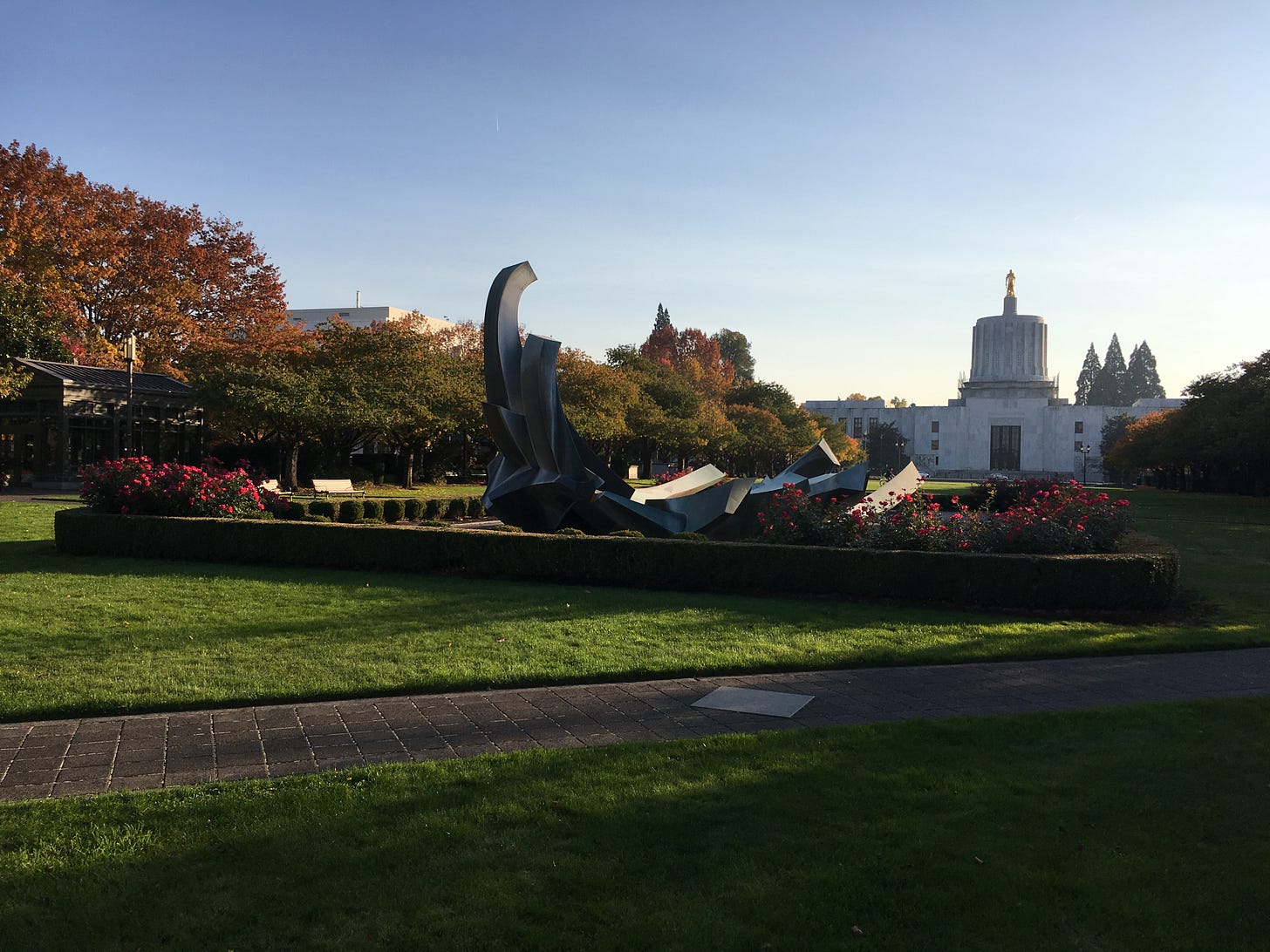A defining day for culture in Salem
The Legislature welcomed advocates from cultural organizations for a day, but on most days “culture” is defined differently in the political process
Chewing on a sesame bagel at the Governor’s Cup in Salem on the morning of Cultural Advocacy Day a couple of weeks ago, I wondered (again) if it could possibly be true that culture eats policy for breakfast.
I was in Salem along with dozens of other people who make their living doing “culture work” in the arts, heritage, and humanities. We were, in our righteous, dreamy, blundering ways, trying to help legislators and their staffers recognize that at least some of the bills providing support to our sector deserve passage. We were there to represent our organizations and the statewide cultural ecosystem, which is a polite way of saying that we, like everyone else making these visits to Salem, had our handouts and our hands out.
In other words, we were begging. We had and have a strong, evidence-based conviction that Oregon’s cultural organizations do all kinds of work that matters to the pocketbooks, relationships, and souls of individuals and communities, but we were also aware that it was the officeholders, not the office visitors, who held the power and the purse strings.
With this on my mind, my bagel wasn’t going down easy: If the cultural sector was begging for support from policy-makers, how could it possibly be the case that culture eats policy for breakfast?
But I think I was mixing up two understandings of culture. The first understanding encapsulates something like artsy stuff—performing and visual arts, literary arts, and even history, philosophy and other attempts not only to express ourselves creatively but also to understand what those expressions mean. In this understanding, which we might call Culture, Culture consists of the (more and less) professional cultural sector. And Culture in this sense clearly does not eat policy for breakfast. In fact, the general feeling of people who work in Culture seems to be that the sector is dependent on and largely undervalued by policy-makers.
The second understanding of culture is broader. It seems to mean something like how we live. This second understanding of culture is the one behind the phrase “culture eats policy for breakfast.” Sure, policy determines where our tax dollars go and what specific behaviors are prohibited by law, but it’s our habits and practices, including our deepest likes and dislikes, that lie beneath and shape these policy decisions. Culture is the ground from which everything else grows. In this understanding of culture’s distinction from Culture, culture likely does eat policy for breakfast.
These two understandings of culture ran together for me on Cultural Advocacy Day because Culture ran into culture, which is to say that Culture ran into the way that business and politics actually get done. By some irresistible alchemy, the broad American tendency to reduce politics and much else to money quickly converted a group of Culture-lovers into money-grubbers. (I am exaggerating in an unfair and unkind way.) Were we, there in our dress-up clothes competing for money, saying to policy-makers that yes, we understand, money matters most? Were we saying that this is true even to those of us whose livelihood is the arts, heritage, and humanities? Or were we simply asking legislators, in their powerful role as distributors of state funding, to recognize that culture (not just the economy) needs a healthier cultural sector—that culture needs Culture?
My hope is that the Legislature sees fit to support bills that would buttress Oregon’s cultural sector. I hope our representatives recognize how much it would mean to the state for the Legislature to re-commit to its original promise of a $200 million corpus for the Oregon Cultural Trust. And I hope our representatives recognize that large and small cultural organizations in all corners of Oregon are still struggling to climb out of the hole that COVID-19 created and still need funds for relief and recovery.
But also, I hope that we culture workers—and political office-holders—do our work in ways that demonstrate its value on its own terms, which are not primarily monetary. I hope we build mutual understanding and more resilient, trusting relationships among the widest possible range of Oregonians. In doing this, I hope we help show that Culture and culture in Oregon are mutually dependent, and that both are based on and devoted to building the biggest, most welcoming and abundant table we can imagine and bring into being.
I mean this metaphorically and also literally: the more we break bread together, the less we’ll need to worry about which sector eats which other sector for breakfast.
Adam Davis works with Oregon Humanities to get people thinking and talking together, and he used to lead backcountry trail crews with the US Forest Service.


